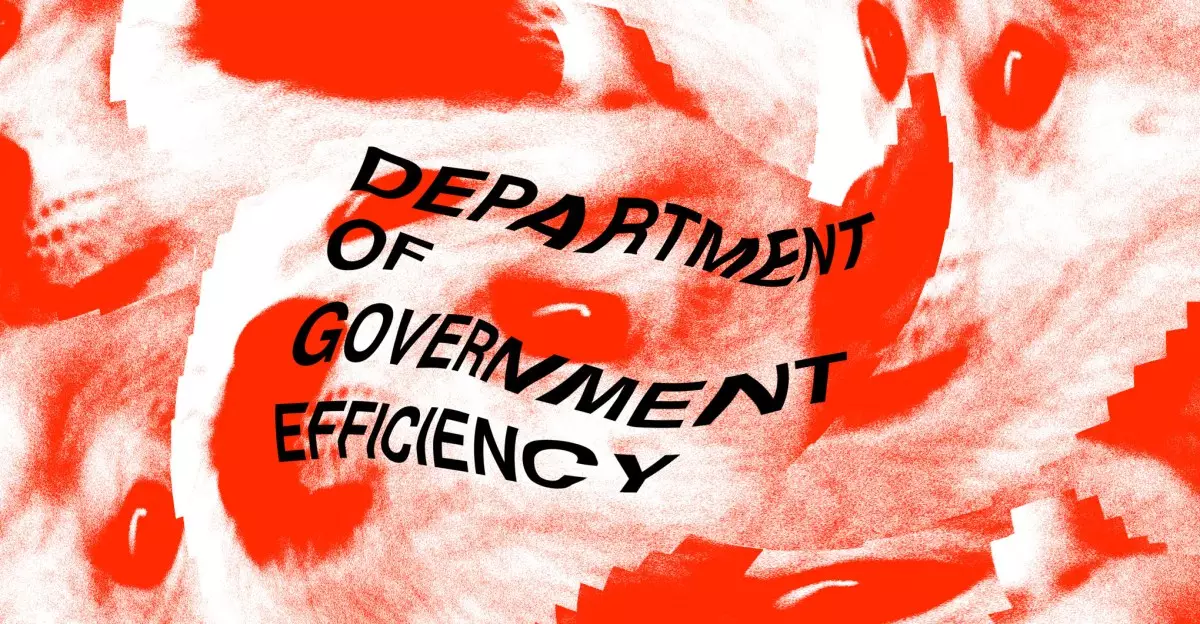In an ambitious bid to modernize government operations, the Department of Government Efficiency (DOGE), under the leadership of Elon Musk, is initiating plans to develop a “mega API” aimed at seamlessly accessing Internal Revenue Service (IRS) data. This idea is not just an abstract concept; it symbolizes a potential transformation of how taxpayers and third-party developers could interact with vital financial information. However, as enticing as this may sound, the challenges ahead are equally daunting.
The Hackathon Hurdle
Scheduled for next week, a hackathon is set to bring together dozens of IRS engineers to collaborate on this pioneering API. While innovation events like hackathons often unleash groundbreaking ideas, the proposed timeline—30 days to deliver—raises eyebrows. Critics within the IRS are already expressing concern that such an expedited project could prove catastrophic for the integrity and operation of tax processes. The urgency of this timeline suggests a significant disconnect between idealistic goals and practical implementation capabilities.
Data Infrastructure and Privacy Questions
At the heart of the mega API initiative lies the potential to move IRS data into a cloud environment, possibly managed by third-party entities such as Palantir, a controversial name often associated with government surveillance. The implications of outsourcing sensitive taxpayer data to external players cannot be overstated. While the aim may be efficiency, the risk of compromising privacy and data security poses significant moral and ethical questions. In an age where data breaches are alarmingly common, the conversation must extend beyond simple functionality to include the safeguarding of individual privacy.
Voices of Dissent
Skeptics abound in the wake of DOGE’s announcement. An anonymous source highlighted that fully understanding and manipulating the IRS data is a multiyear endeavor, suggesting that the inexperience of the project’s key figures could lead to oversimplifications or, worse, exploitable vulnerabilities in the system. Such criticisms are pivotal; they challenge the narrative of rapid efficiency in government projects, highlighting how ignorance and haste can breed more profound systemic failures.
The Political Underpinnings
Furthermore, as reported by media outlets including The Washington Post, the initiative seems entwined with broader political narratives regarding the use of IRS data for immigration enforcement and other policy aims. Senator Ron Wyden and others praised the IRS’s decision to reject DOGE’s requests to lift restrictions on access to such sensitive data, emphasizing the importance of checks and balances in government operations. The intersection of technology and policy-making often reveals the ulterior motives at play, questioning the underlying goals of such ambitious projects.
While the vision for a “mega API” holds the promise of increased modernization and efficiency within the IRS, the execution of such an endeavor is fraught with complications and risks. As stakeholders and citizens observe this evolving initiative, it becomes crucial to prioritize informed discourse and thorough vetting of technology’s role in governmental frameworks. The path to an efficient IRS must be navigated cautiously, ensuring that innovation does not come at the expense of accountability and public trust.

